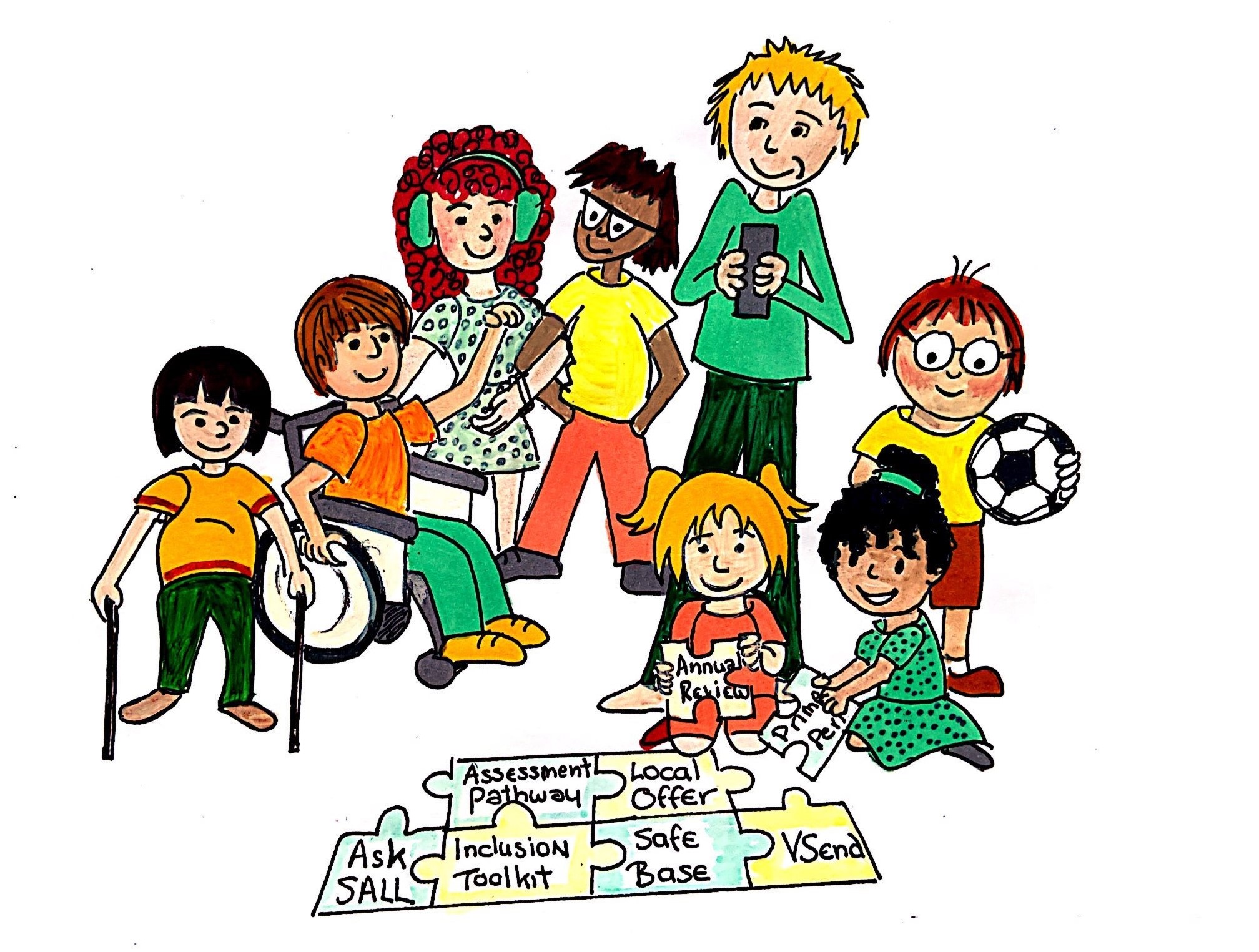Level 3-4 strategies to support targeted interventions
High quality teaching strategies, approaches and adaptations for pupils should be implemented and supplemented
0-5
- on-going opportunities for individual support focused on specific `targets with reinforcement in large and small group activities to aid generalisation of skills
- flexibility of groupings allows for good role models and focused teaching
- further modification of level, pace, amount of adult talk to address child’s identified need
- advice from external agencies including Education, Health and Social Care to be implemented in the setting
- provision of alternative communication systems should be considered to support the development of expressive and receptive language skills and learning. For example, Makaton signing
- the development of self-help skills is addressed through individual programmes for dressing, feeding, eating and toileting which require adult support and supervision
- enhanced opportunities to use specialist IT equipment and technological aids. For example, touch screen
- use of visual reminders, timers, resources and rewards to develop independence
- the SENDCo takes responsibility for supporting others to devise, deliver and evaluate a personalised programme that supports learning. Early years specialist teachers can advise and support setting SENDCo's with this
- a monitoring system should be in place to assess child’s need, identify outcomes, implement support, monitor and evaluate progress
5-16
- differentiation is used to ensure the development of literacy, numeracy, expressive language and communication skills and to minimise behaviours and emotional difficulties
- access to adults who are skilled and experienced in supporting students with general and specific learning difficulties
- assessments focus on how the pupil is learning, more in-depth analysis of strengths and weaknesses and progress in relation to time
- arrangements to support the use and delivery of approaches or materials for students with Specific Learning Difficulties (SpLD) which may include multi-sensory teaching strategies, a focus on phonological awareness and/or motor skills programme
- make reasonable adjustments to the learning environment. For example, appropriate seating, individual work-station, visual timetable, timings of breaks and transition arrangements within the school day, use of timers
- use materials which reduce or support note taking, copying of diagrams and charts or provide alternative approaches to recording
- effective use of IT equipment to support learning. For example, speech to text software, such as Dragon or various note taking programs, text to speech software, such as Read, Write, Gold, or writing software, such as Clicker or DocsPlus as well as mind mapping software
- adapted use of multi-sensory teaching, targeted at area of needs
- pre and post-tutoring
- breaking down of tasks into even smaller steps
- small group intervention, using time limited programme at least twice a week, in addition to the daily phonics and numeracy sessions
- daily overlearning of the reading of irregular words
- daily over learning of the spelling relevant to the pupils need (For example, Topic based, high frequency words or irregular words depending on pupil's needs)
- opportunities to transfer knowledge of spelling at word level to sentence level through dictation
- opportunities for frequent game-based activities to reinforce learning and develop skills. For example, games for memory, numeracy, reading, spelling and motor skills
- work systematically at the pupils’ pace until mastery level is attained
- targeted intervention such as precision teaching, paired reading, spaced-learning, memory games
- some use of small group or 1:1 programmes, planned by the teacher and delivered by a TA, to address specific difficulties
- considered use of 1:1 support to encourage learner’s independent access to the curriculum and their learning
- progress in interventions is recorded and shared with teachers so that learning is transferred and focussed teaching can be planned to address any difficulties
- opportunities are provided for skill reinforcement, over learning, revision, transfer and generalisation
- access to resources such as coloured paper, coloured overlays, handwriting grips, auditory and/or visual memory programme, coloured ‘whiteboard’, reading ruler, fiddle object, brain breaks, ear defenders, everyday readers
- advice from external agencies is implemented in the classroom
- classroom or teaching adjustments need to create psychological safety For example, cold call questioning or reading aloud in front of the class may be stress-inducing
- use of visual reminders, timers, resources and rewards to develop independence


